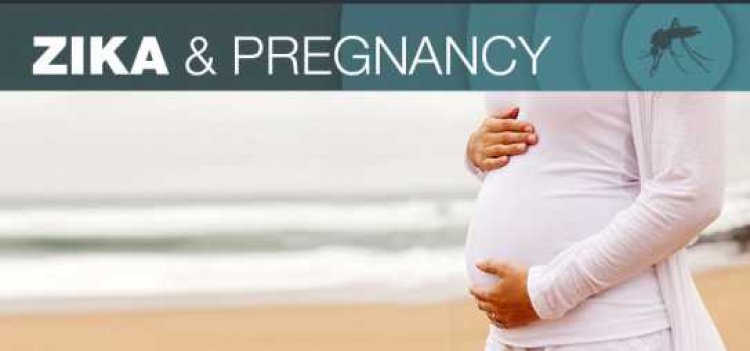NEW Zika and Dengue Testing Guidance (Updated November 2019)
Source: CDC. Zika virus testing should NOT be performed as part of preconception screening.

Since the Zika outbreaks of 2016, reported Zika cases in the Americas have declined by 30-70-fold and are now outnumbered by reported dengue cases by a ratio of approximately 200:1.
The last nucleic acid amplification test (NAAT) confirmed the case of a locally acquired Zika in the continental United States was in September 2017. Similarly, the last confirmed NAAT positive case in the U.S. territories was reported in May 2018.
Dengue virus currently is causing large outbreaks in many areas of the world, with low to no Zika virus transmission being reported globally. Given the current global arboviral epidemiological situation, CDC has updated its Zika and dengue testing guidance for persons living in or with recent travel to areas with active dengue transmission and risk of Zika.
In the event a country reports an outbreak of Zika virus (red area), follow the testing guidance in MMWR: Dengue and Zika virus diagnostic testing for patients with a clinically compatible illness and risk for infection with both viruses.
This page will be updated as needed to communicate testing guidelines based on the changing epidemiology of dengue and Zika.
Asymptomatic pregnant women:
For asymptomatic pregnant persons living in or with recent travel to the U.S. and its territories, routine Zika virus testing is NOT currently recommended.
For asymptomatic pregnant women with recent travel to an area with risk of Zika (purple areas) outside the U.S. and its territories, Zika virus testing is NOT routinely recommended, but NAAT testing may still be considered up to 12 weeks after travel.
Zika virus serologic testing is NOT recommended for asymptomatic pregnant women. Zika IgM antibodies can persist for months to years following infection. Therefore, detecting Zika IgM antibodies might not indicate a recent infection.
There is notable cross-reactivity between dengue IgM and Zika IgM antibodies in serologic tests. Antibodies generated by a recent dengue virus infection can cause the Zika IgM to be falsely positive.
Symptomatic pregnant patients:
For symptomatic pregnant women who had recent travel to areas with active dengue transmission and a risk of Zika, specimens should be collected as soon as possible after the onset of symptoms up to 12 weeks after symptom onset.
The following diagnostic testing should be performed at the same time: Dengue and Zika virus NAAT testing on a serum specimen, and Zika virus NAAT on a urine specimen, and IgM testing for dengue only.
Zika virus IgM testing is NOT recommended for symptomatic pregnant women.
Zika IgM antibodies can persist for months to years following infection. Therefore, detecting Zika IgM antibodies might not indicate a recent infection.
There is notable cross-reactivity between dengue IgM and Zika IgM antibodies in serologic tests.
Antibodies generated by a recent dengue virus infection can cause the Zika IgM to be falsely positive. If the Zika NAAT is positive on a single specimen, the Zika NAAT should be repeated on newly extracted RNA from the same specimen to rule out false-positive NAAT results.
If the dengue NAAT is positive, this provides adequate evidence of a dengue infection and no further testing is indicated.
If the IgM antibody test for dengue is positive, this is adequate evidence of a dengue infection and no further testing is indicated.
For symptomatic pregnant women who have had sex with someone who lives in or recently traveled to areas with a risk of Zika, specimens should be collected as soon as possible after the onset of symptoms up to 12 weeks after symptom onset.
Only Zika NAAT should be performed. If the Zika NAAT is positive on a single specimen, the Zika NAAT should be repeated on newly extracted RNA from the same specimen to rule out false-positive NAAT results.
Pregnant women who have a fetus with prenatal ultrasound findings consistent with congenital Zika virus infection who live in or traveled to areas with a risk of Zika during her pregnancy:
Zika virus NAAT and IgM testing should be performed on maternal serum and NAAT on maternal urine.
If the Zika virus NAATs are negative and the IgM is positive, confirmatory PRNTs should be performed against Zika and dengue.
If amniocentesis is being performed as part of clinical care, Zika virus NAAT testing of amniocentesis specimens should also be performed and results interpreted within the context of the limitations of amniotic fluid testing.
It is unknown how sensitive or specific RNA NAAT testing of amniotic fluid is for congenital Zika virus infection or what proportion of infants born after infection will have abnormalities.
Testing of placental and fetal tissues may also be considered (see guidance for Collecting and Submitting Specimens at Time of Birth for Zika virus Testing). Symptomatic non-pregnant patients should refer to testing guidance for dengue.
Zika testing is NOT currently recommended for this group based on the current epidemiology of these viruses.
As per previous guidance, asymptomatic non-pregnant patients should NOT be tested for dengue or Zika viruses
What's Your Reaction?









































































